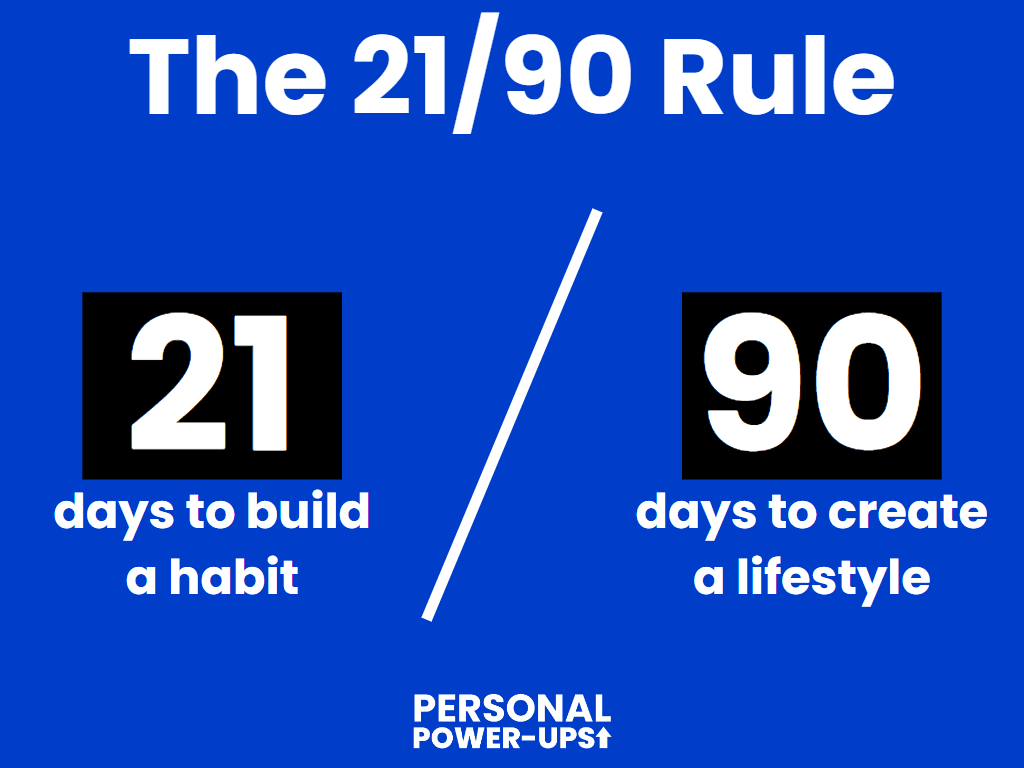When it comes to building good habits, you might have heard of the 21/90 rule. This simple rule promises that if you do something for 21 days straight, it becomes a habit. Then, if you keep it up for 90 days, it turns into a lifestyle. Sounds great, right? But does it actually work?
Contents
What Is the 21/90 Rule?
The 21/90 rule states that it takes 21 days to form a habit and 90 days to make it a permanent lifestyle change. Whether you’re trying to eat healthier, exercise more, or meditate daily, this rule offers a clear and straightforward approach to making positive changes in your life.

▼ Ad
How to Use the 21/90 Rule
Using the 21/90 rule is straightforward:
Pick a habit: Choose one habit you want to build. Focus on something specific, like drinking eight glasses of water daily or reading for 30 minutes before bed.
Commit for 21 days: Stick with your chosen habit every day for 21 days. No exceptions. This period is about making the habit a regular part of your routine.
Push through for 90 days: After 21 days, you’ve likely started to see some changes. Now, keep it up for 90 days. This phase is about solidifying the habit so it becomes second nature and becomes a new permanent lifestyle change.
Does Science Back Up the 21/90 Rule?
The 21/90 rule is popular, but is it backed by science? Well, not quite.
The 21/90 rule was coined by Dr. Maxwell Maltz, a cosmetic surgeon, in his book Psycho-Cybernetics. He observed that his patients needed about 21 days to get used to their new appearance. However, building a habit is more complex than just sticking with something for three weeks.
Recent research suggests that forming a habit takes, on average, 66 days—though this can vary widely depending on the individual and the habit. Some habits might take longer (up to 254 days), while others could take less time (at least 18 days). So, the 21/90 rule is true for a small portion of habits and individuals, but is by no means a general rule you should apply to building good habits.
Another important point is that the promise of a permanent lifestyle change in 90 days is flawed. Your life is in constant motion, and so are your habits and lifestyle. That’s a good thing: it means you’re constantly evolving and growing. Perhaps you’ll have a kid in a couple of years, or you’ll move to another country, which will most definitely have an impact on the way you live. So a permanent lifestyle change in 90 days? That’s unlikely.
The key takeaway? The exact number of days isn’t as significant as consistency and commitment. If the habit is important to you, it doesn’t matter whether it will take 21 days to form a habit, or 50 days. You simply have to be consistent, and the rest will take care of itself.

▼ Ad
Better Ways to Build Good Habits
Though the 21/90 rule has its uses, it’s not the best way to build good habits. Here are some better options:
Conclusion
The 21/90 rule offers a simple framework for building habits, but it’s a myth in most cases. The real power lies in your commitment and consistency. Whether it takes you 21 days to form a habit, 66 days, or even longer, the key is to keep going. With time and effort, you’ll find that your new habit isn’t just something you do—it’s part of who you are. So, pick a habit, commit, and start designing your life today!










